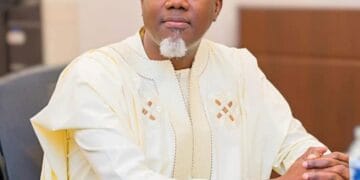The World Bank says an estimated four million Nigerians have been pushed into poverty within the first six months of 2023.
This was attributed to the high inflation in the country — which has risen to a 17-year high — one of the highest inflation rates in the world.
It warned that about 7.1 million poor Nigerians would become poor if the federal government failed to provide palliatives following the removal of fuel subsidy.
TheHintsNews reports that President Bola Tinubu had during his inauguration on May 29 sent shock waves to the country when he announced that subsidy payment on petrol was over.
The sudden removal of subsidy on petrol saw the price jumped from N194 per litre to between N500 and N540 per litre.
However, the World Bank during the launch of the June 2023 edition of the Nigeria Development Update on Tuesday in Abuja said 89.8 million Nigerians were poor as of the beginning of this year.
The World Bank update report projected that the number of poor Nigerians will rise to 100.9 million if the government fails to compensate vulnerable citizens for fuel subsidy removal.
It stressed that Nigeria’s inflation has risen to a 17-year high, and has been driven by a number of factors, such as Central Bank of Nigeria (CBN) funding of budget deficit, previous multiple exchange rates, devaluation, and trade restrictions.
It said: “89.8 million Nigerians were poor as of the beginning of this year. Additional four million Nigerians became poor between January and May this year, raising the figure to 93.8million.”
“Consumer price inflation has surged and is currently one of the highest globally, which is related to Nigeria’s fiscal imbalance and points to the urgency of reform efforts.
“Inflation in Nigeria has been high for many years due to structural factors, but it escalated in 2022, to the point where consumer prices increased at their fastest pace for 17 years.
“The consumer price index further accelerated in 2023 through May, up to 22.4 percent y-o-y. High inflation has been driven by the monetization of the fiscal deficit by the CBN, multiple exchange rates and exchange rate depreciation in the parallel market, and intensified trade restrictions, exacerbated by the spike in global food and energy prices.”
It added that the CBN implemented measures to control rising inflation, including raising the monetary policy rate by 700 basis points, but these proved ineffective and monetary policy remained loose overall in the first half of the year.
It noted, “The loss of purchasing power from high inflation has increased poverty in the short-term, pushing an estimated 4 million Nigerians into poverty between January and May 2023.”













